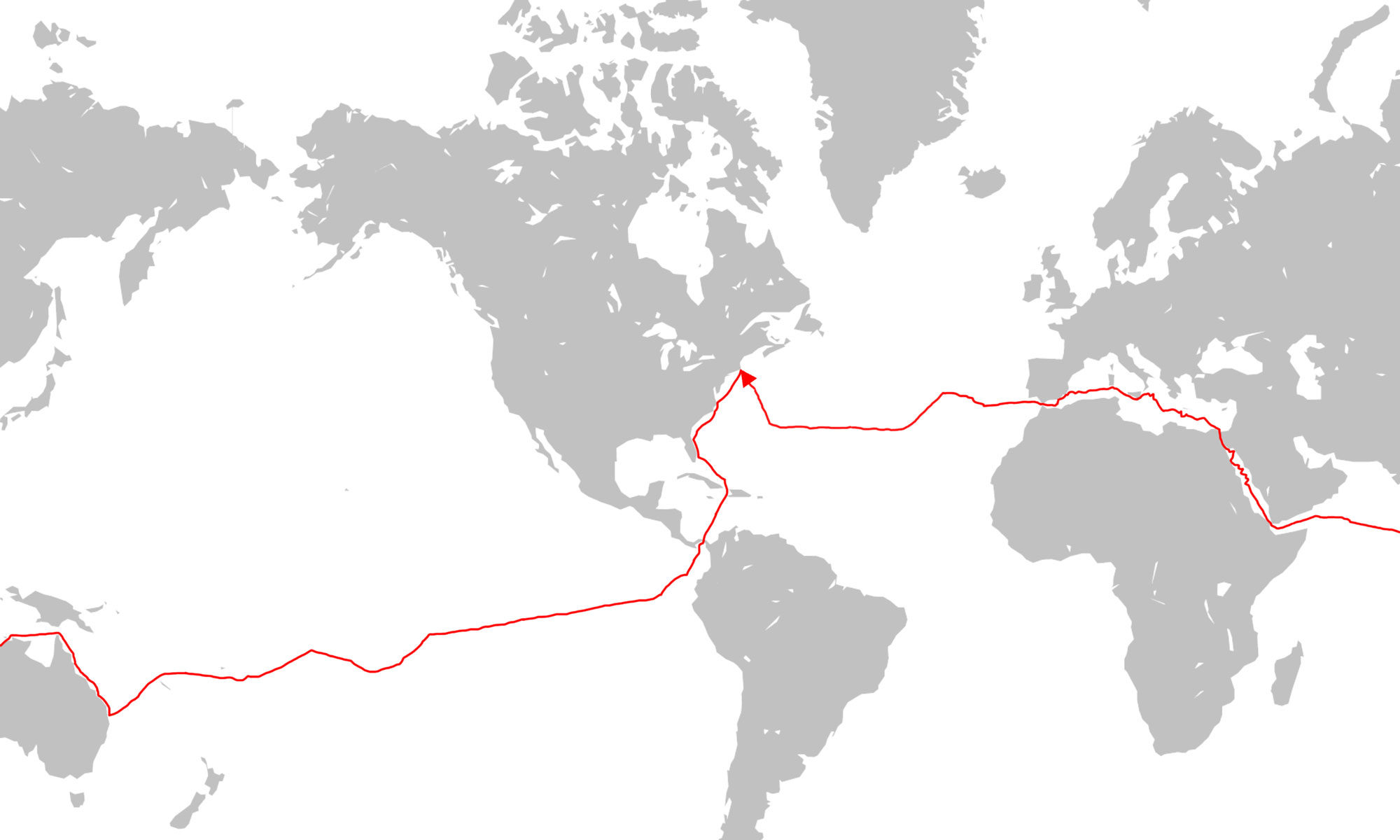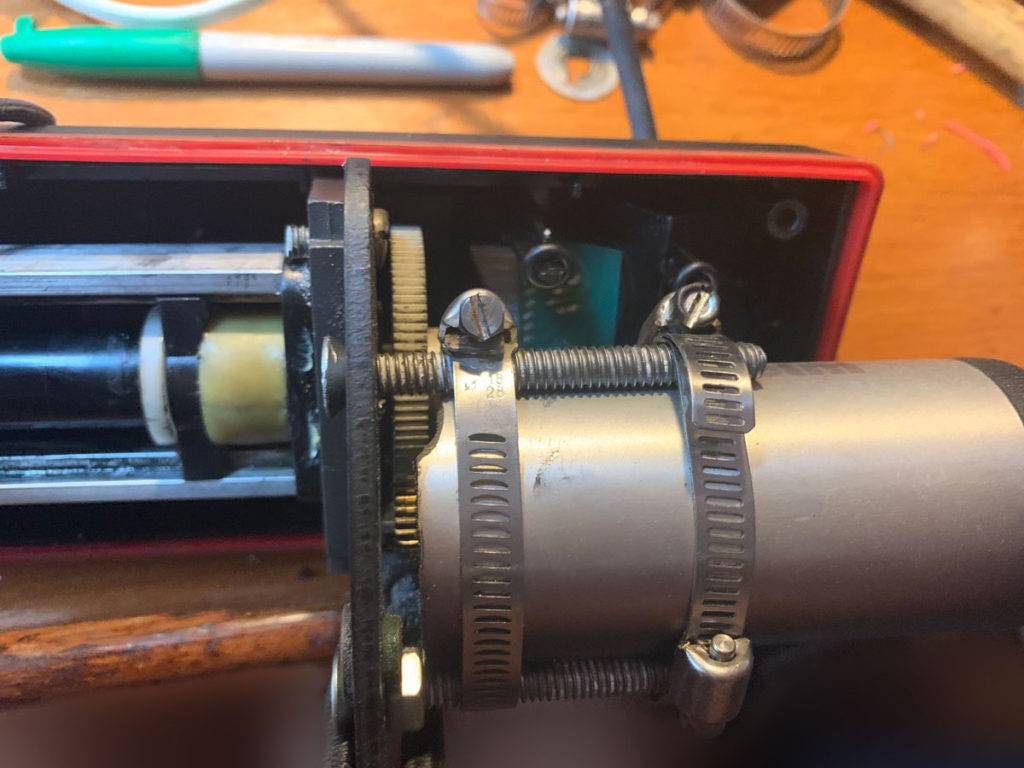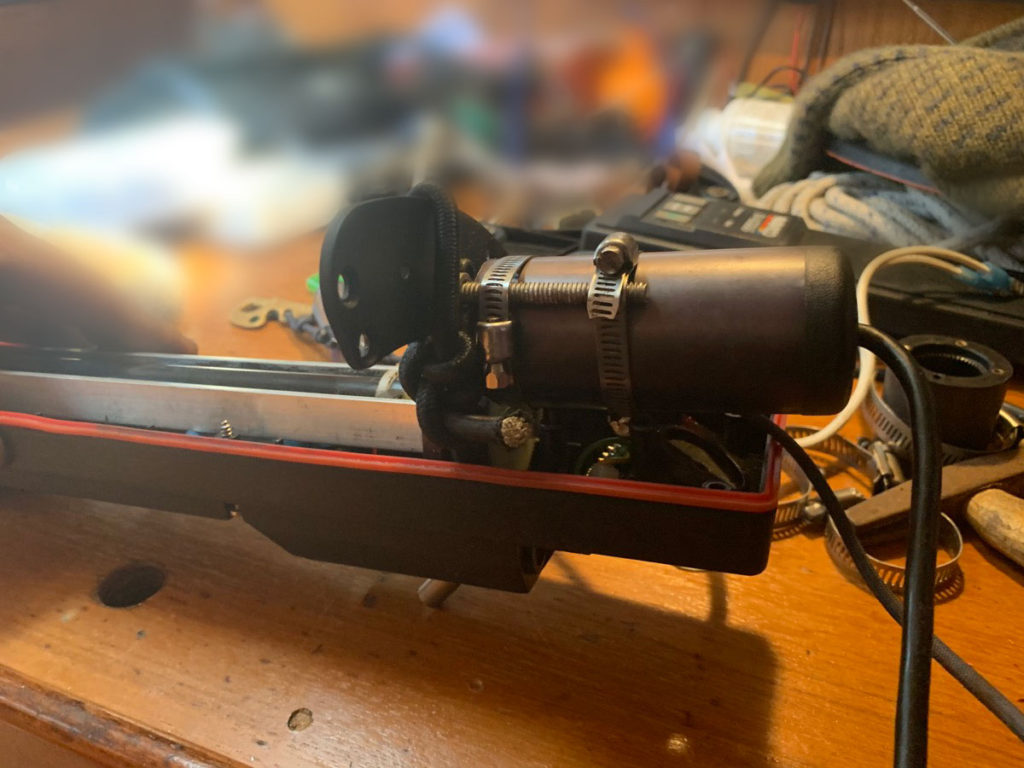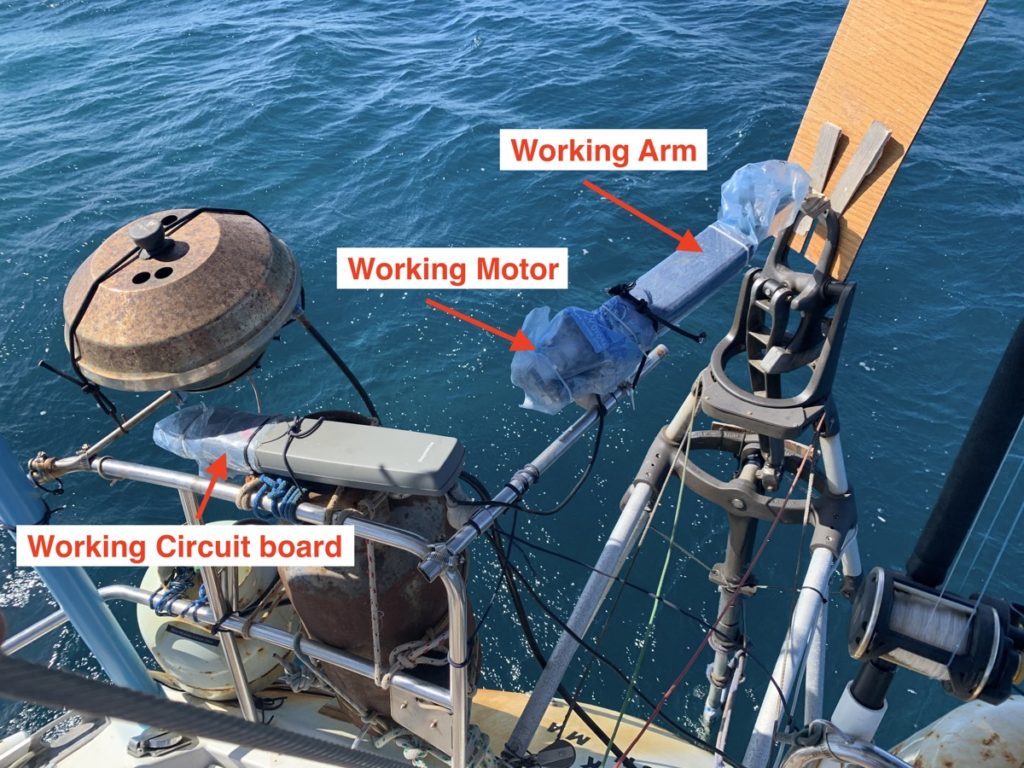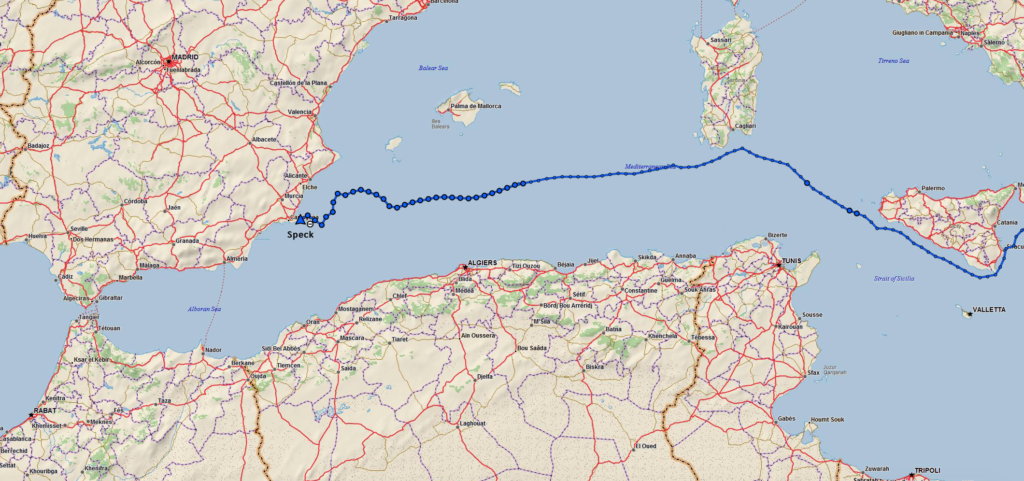
We said goodbye to Syracuse and finally enjoyed some really nice downwind sailing. This came as a well needed reprieve from the thunderstorms and squalls that had us hunkered down below decks without sleep for days.
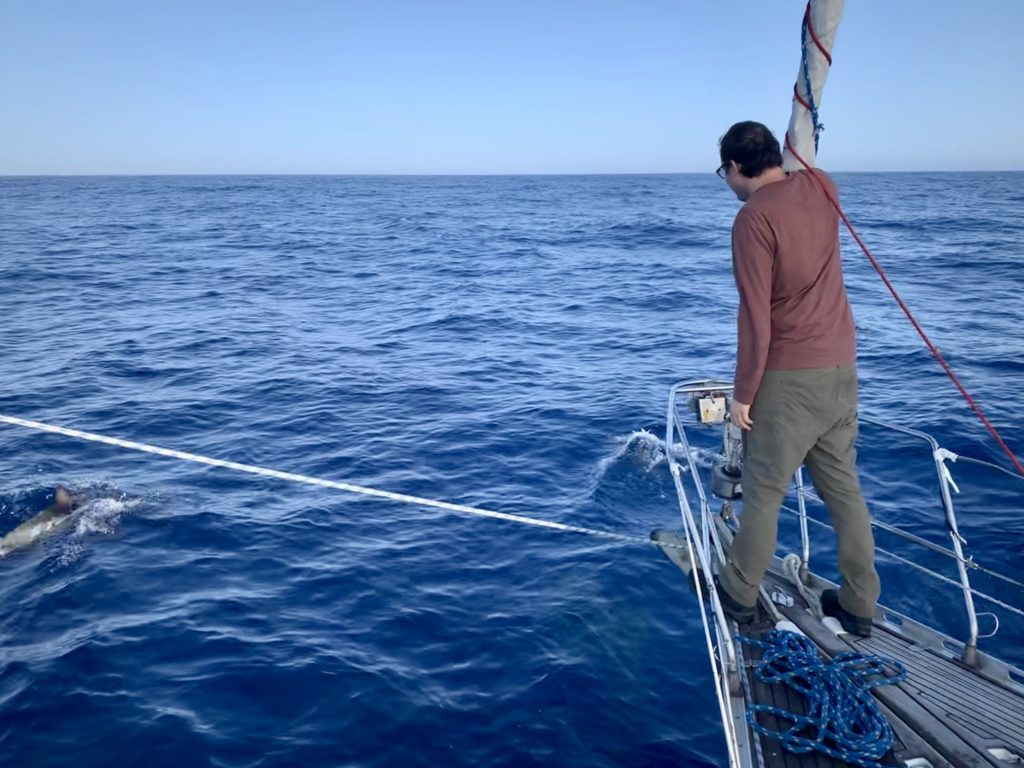
We have read that dolphins had returned to Italy since the virus had taken hold. Less business being conducted means less shipping and less ship strikes. Be it that or otherwise we were glad to see our aquatic friends out playing in the wake of our bow.
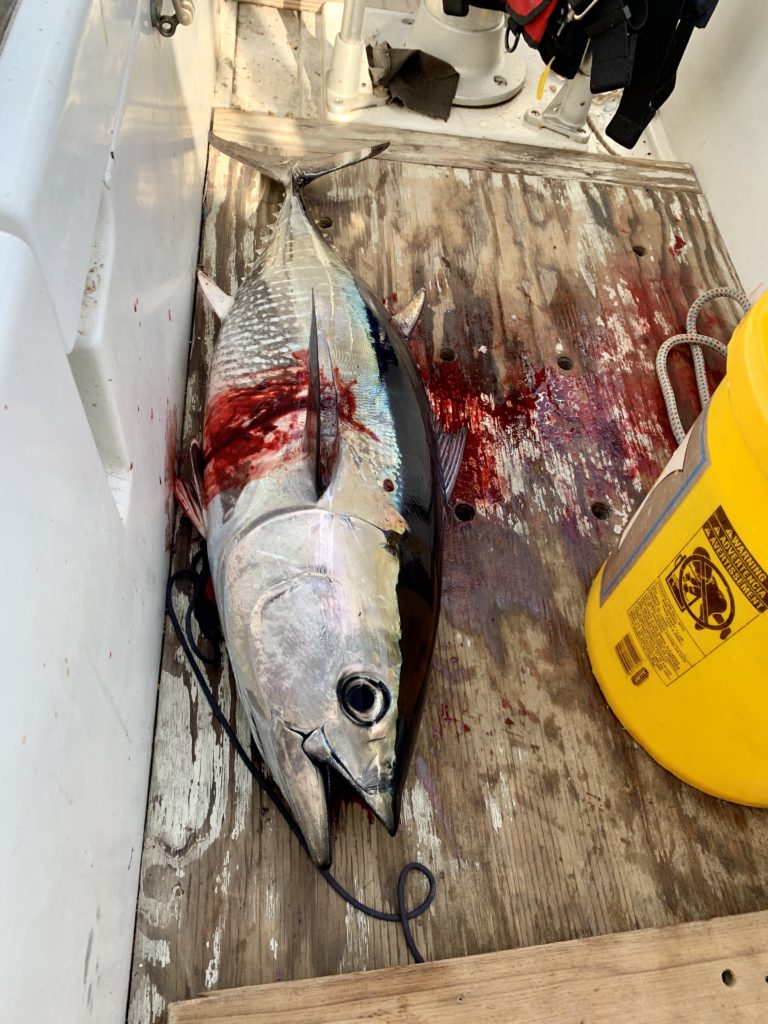
Extended days at sea for us means very little fresh meat due to our inability to store it without spoil. Brutal as it may be, fresh line caught tuna can bring about a great turn in moral and energy levels. This beautiful fish gave up a heroic struggle getting into the boat, but alas we prevailed and took a break from our usual rice and beans.
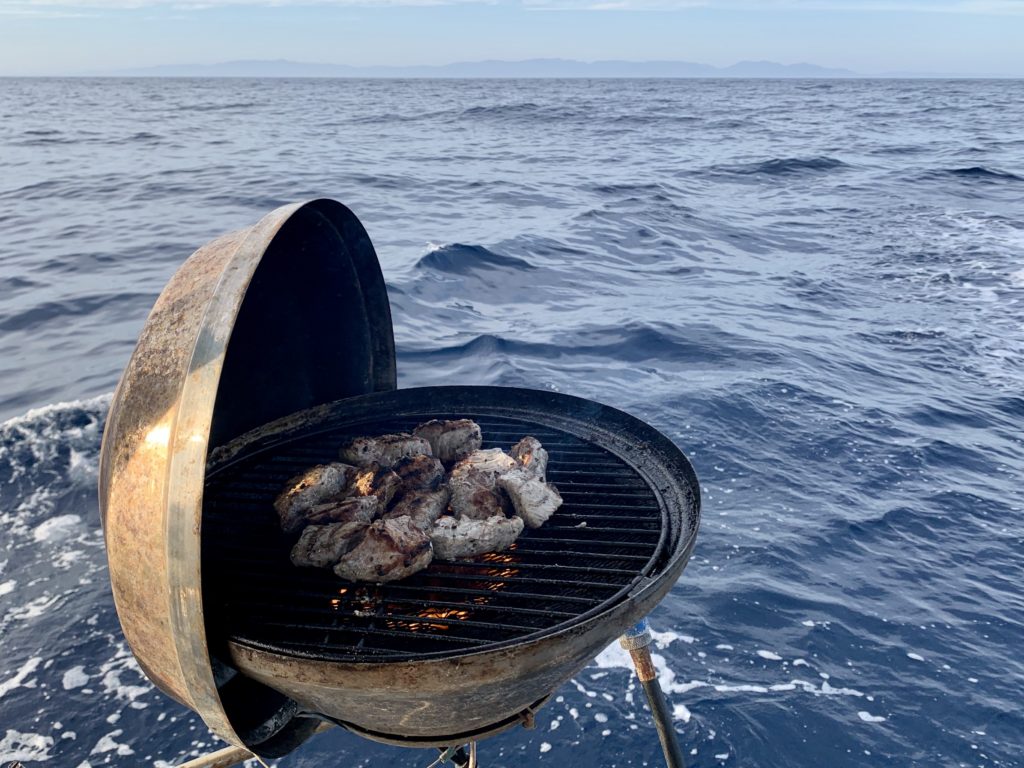
We have found through our various experiences catching big fish that the best way to ensure that none is wasted is to cook it right away. One person fillets the fish on deck and hands it to another person running the grill where it is oiled, seasoned then grilled to perfection. We usually serve it up over a bed of rice, a squeeze of lemon and whatever veggies we have available. The rest we pack away to be eaten over the next 4-5 days.
Byron’s ingenuity never ceases to amaze us aboard SV Speck. We have now burned through three little autopilots in our travels. By the time we burned through the motor of this last one, Byron had become an expert on the inner workings if these machinations. By salvaging the working parts of three separate brands of autopilots he was able to build a new system of his own. Three cheers for our engineering department! Hip hip, hurray!
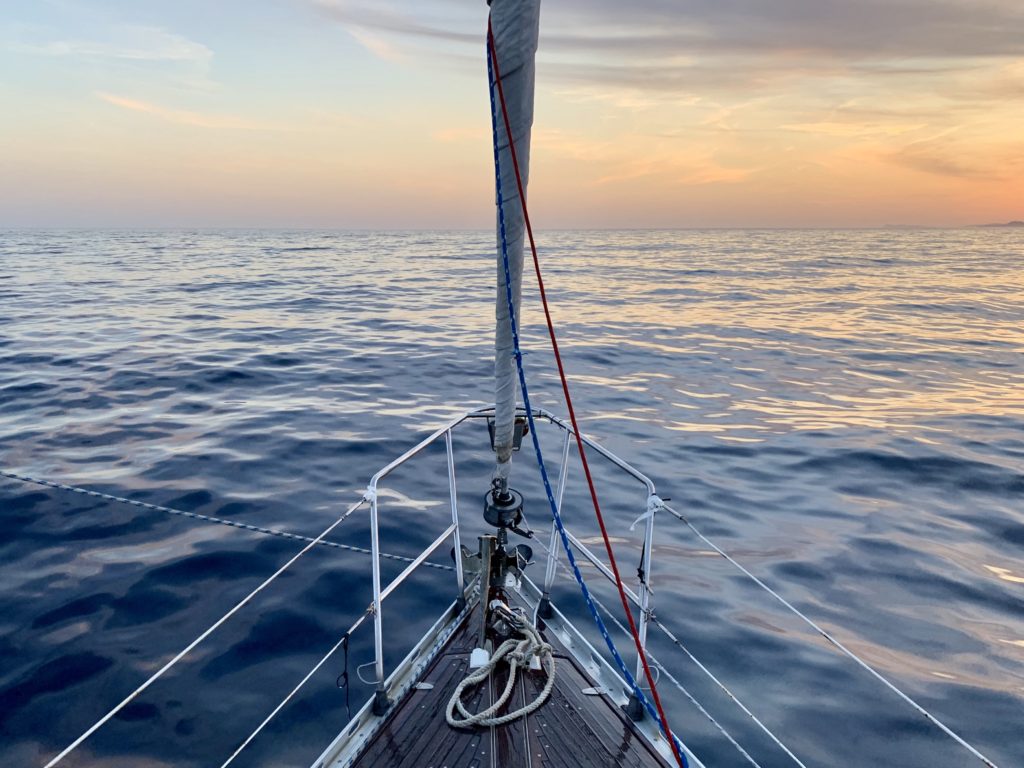
As we prepare to stop in Gibraltar, we reached out to the authorities there asking if it’s possible to reprovision one last time before we make our long Atlantic crossing. They say it may be possible and will be expensive. A big thank you goes out to Cris & Steve, Pattie & Barb, Chrissy, Phil, Sandy & Doug, Greg, and Matt & Katie for their donations. It looks like we will be able to afford the required $375 agent fee, a full tank of diesel, water, and even a few fresh food items. Here’s what we ordered:
• potatoes 4kg • onions 2kg • capsicums 1 kg • carrots 1 kg • cabbage x2 med heads • tomatoes x10 (cheap medium size) • cucumbers x10 • lettuce x 2 head • beets x 3 (no greens) • broccoli x 1 head • lemons x 6 • oranges x 6 • bananas x1 bunch • green apples x 5 kg • bread x2 loafs • cheese 4kg mild cheddar • meat 1.5 kg beef (chopped) 1.5 kg chicken (brests) • 10 canned meat (ground beef or similar) • 10 canned chicken • crackers 5 kg (triscuts, wheat thins, saltines etc.) • tuna x60 tins • ~18 liters beer (two cases) (cheapest priced beer) • candy 1 kg assorted chocolates and sweets (surprise us with your local variety) • Ramen noodle 30 packs • pasta red sauce 9 can/jars about 700g each (cheapest sauce) • soda 24 cans ginger ale, 24 cans sprite or similar • penne noodles or similar (tubular) 8kg • mayo x2 500ml jars
It will be interesting to see what we get!
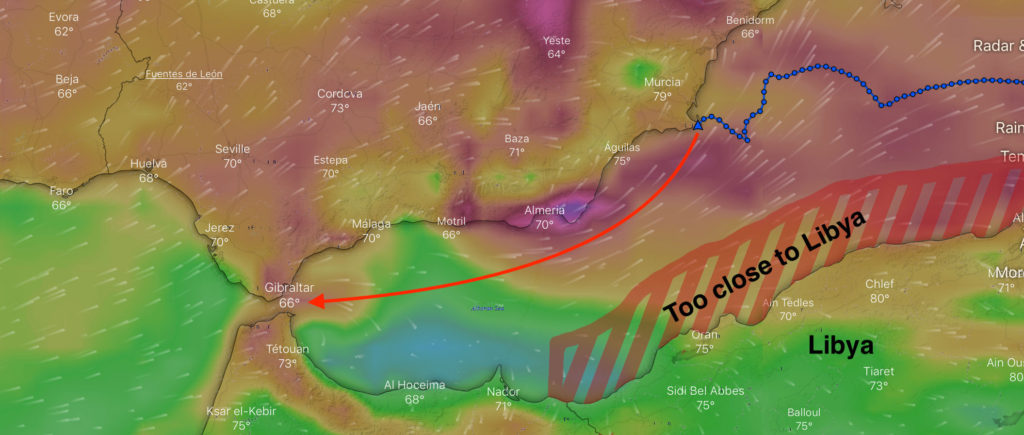
All good sailing must come to an end. As we crossed into Spanish waters we entered into what the British navy used to call “the gut” of the Mediterranean. Not only did we encounter heavier and heavier seas but the weather became much less predictable. It could be calm as cows for one hour then blowing a gale the next. Our new weather plotting software at one point predicted winds blowing 14 gusting to 20 knots and we flew right into what is considered a “near gale” 27 knots gusting to 35 with waves regularly crashing over the entire boat. And that brings us to where we are now, bunkered down in the lee of some coastal town in Spain, east of Cartagena waiting for a pitch of bad weather to pass so that we can finally refuel and rewater in Gibraltar on our long way back home.
